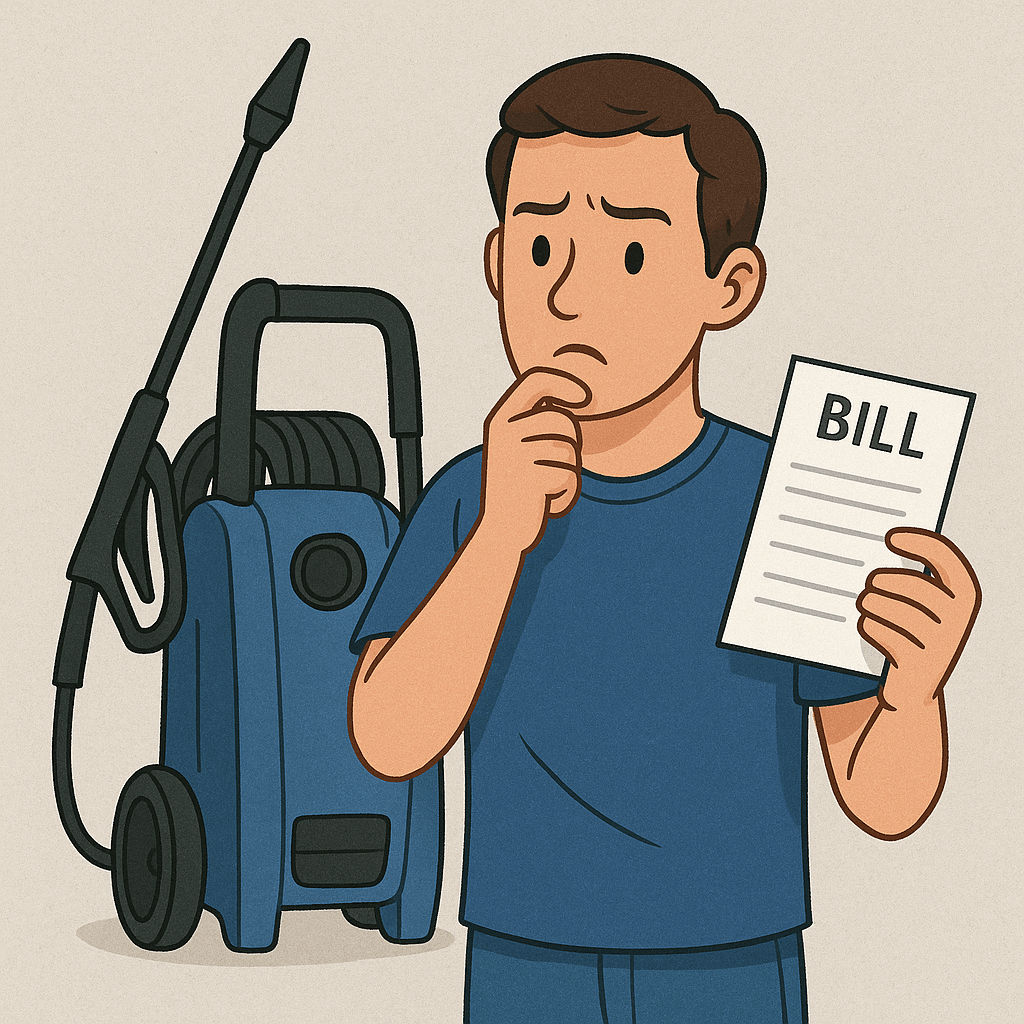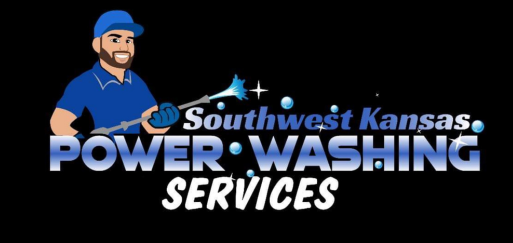Does Pressure Washing Increase the Water Bill?

Yes, pressure washing can increase your water bill, but not as much as most people think, and in some cases, it may actually use less water than traditional cleaning methods. If you’re not comfortable doing it yourself, consider hiring a professional pressure washing services company that can optimize water usage and deliver better results.
The key factor is that pressure washers use high pressure with lower flow (measured in gallons per minute, or GPM), meaning they clean surfaces faster and more efficiently. Most residential pressure washers use 1.5 to 2.5 GPM, which is far less than a typical garden hose that may run up to 10 GPM when left on continuously.
If you're pressure washing a driveway, patio, siding, or deck, the total increase on your bill depends on how long you run the machine and your local water rates. For example, a 2-hour session with a 2 GPM unit would only consume 240 gallons of water, about a third of what you'd use watering a medium lawn.
Understanding How Pressure Washing Uses Water
PSI vs. GPM — What Really Affects Water Usage
PSI refers to the force at which water hits the surface. While it’s essential for removing dirt, PSI doesn’t affect how much water you use.
GPM (Flow rate) is the true measure of water consumption. A machine rated at 2.0 GPM will use 2 gallons of water every minute it's running. A higher GPM = more water used, regardless of PSI.
Electric vs. Gas Pressure Washers: Efficiency and Consumption
Electric pressure washers typically operate at 1.4 to 1.8 GPM and are more water-efficient for light-duty jobs. Gas-powered units range from 2.5 to 4.0+ GPM, cleaning faster but using more water.
Cold Water vs. Hot Water Units and Their Water Demands
Cold water washers are standard and efficient. Hot water units don’t use more water by GPM but may consume more energy and water due to heating systems and longer operational setups.
How Much Water Does a Pressure Washer Use?
Typical Gallons Per Hour Based on Machine Type
- Light-duty electric (1.4–1.8 GPM): ~84–108 gallons/hr
- Medium-duty (2.0–2.5 GPM): ~120–150 gallons/hr
- Heavy-duty commercial (3.5–4.0+ GPM): ~210–240+ gallons/hr
Surface Area and Time: What Makes Water Usage Add Up
- Small deck/vehicle (15–30 mins): ~30–60 gallons
- Average driveway (1–2 hrs): ~120–300 gallons
- House siding (2–3 hrs): ~240–450 gallons
DIY vs. Professional Pressure Washing: Who Uses More?
DIY often uses more time and water. Professionals may use high-GPM machines but complete the task faster and sometimes bring their own water.Consider asking them if they would bring their own water when hiring them
Comparing Pressure Washing to Other Cleaning Methods
Garden Hose vs. Pressure Washer: Surprising Water Savings
Garden hoses use 6–10 GPM. A 30-minute job with a hose can use 240 gallons, vs. only 60 gallons with a 2 GPM pressure washer.
Manual Scrubbing with Buckets: Low Use, High Effort
Buckets use less water but are less effective for large surfaces. They often require multiple rounds, potentially using more water overall.
How Pressure Washing Affects Your Water Bill
Calculating Cost Based on Local Water Rates
According to the average residential water rates in the U.S., 1,000 gallons typically cost $4–$7. A 2-hour session using 240 gallons would cost $1–$1.70. Minimal impact for most households.
Real-World Examples of Residential Water Bill Impact
- Small patio: ~67 gallons → Less than $0.50
- Medium driveway: ~300 gallons → About $1.50–$2.10
- Full siding: ~360 gallons → Around $2.00
High-Usage Scenarios to Watch Out For
- Commercial units used for long durations
- Cleaning very large properties
- Leaving machine running between tasks
- Overwashing unnecessarily
Does Mobile Pressure Washing Use Your Water Supply?
Usually not. Most mobile services bring water tanks and may reclaim and reuse water. Ask ahead if they plan to use your spigot.
How to Pressure Wash Without Spiking Your Water Bill
Use the Right Nozzle and GPM Rating
- 0° (red): Too focused, can damage and waste water
- 15°–25°: Best balance for general cleaning
- 40°: Ideal for rinsing and delicate surfaces
Pre-Treat Surfaces to Reduce Wash Time
Use detergents to loosen grime, requiring fewer passes and saving gallons.
Capture and Reuse Water in Large Projects
Use containment mats or buckets to reclaim water. Ideal for eco-friendly or large commercial setups.
FAQs: Pressure Washing and Water Bills
How much does it cost to pressure wash a driveway in terms of water use?
About $1.50 to $2.50 depending on size and local rates.
Can using a pressure washer save water compared to a hose?
Yes. A pressure washer uses less water and cleans faster than a garden hose.
Does water usage vary by the type of surface being cleaned?
Yes, textured or dirty surfaces require more time and water.
Do I pay for the water used if I hire a pressure washing service?
Most mobile services bring their own water, but ask in advance to confirm.
Will pressure washing multiple times a year significantly raise my bill?
No. Even frequent washing adds only a few dollars per year unless using high-volume equipment excessively. Learn more about how often you should pressure wash your driveway to keep it clean without overspending.
CONNECT WITH YOUR LOCAL POWER WASHING SPECIALIST TODAY!
